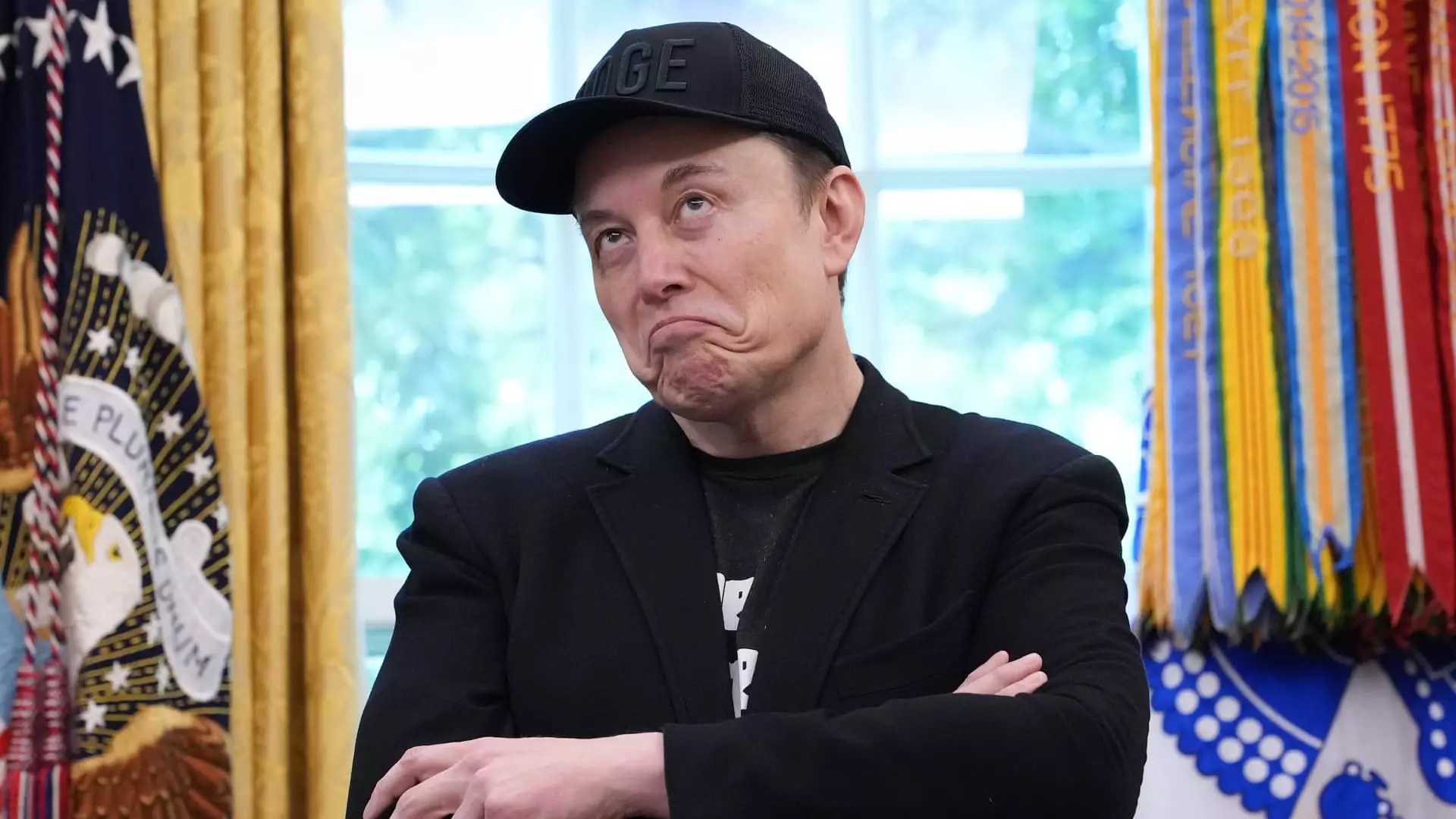In an era where political decision-making often appears driven by short-term gains rather than long-term stability, Elon Musk’s recent critique of the U.S. spending bill stands out as a rare voice advocating for fiscal responsibility. Musk, known primarily for his technological innovations and entrepreneurial ventures, has now stepped into the realm of national finance debates, highlighting the dangerous trajectory of mounting national debt fueled by short-sighted policies. His stance is not merely an act of opposition but a call to reconsider how policies influence future generations—the ultimate stakeholders of national economic health. Musk’s outspoken rejection of the bill underscores a fundamental belief: that reckless spending and unsustainable deficits threaten the very foundation of economic progress.
Tech Mogul as a Policy Critic: Signaling a Shift in Power Dynamics
When figures like Musk publicly criticize legislation, they exemplify a shifting paradigm where corporate leaders leverage their influence beyond the boardroom. Musk’s vocal opposition, especially on platforms like X (formerly Twitter), reflects a broader disdain for political practices that prioritize immediate gratification over sustainability. His alignment with Senator Rand Paul, who also vocalized concerns about the bill’s impact on the deficit, signifies an alliance rooted in fiscal discipline rather than party politics. More importantly, Musk’s critique reaches beyond mere rhetoric; it underscores the growing frustration among business leaders who see policies—such as massive tax cuts and reduced investments in renewable energy—as shortsighted moves that could jeopardize future economic stability.
Environmental Setbacks and Economic Implications
Musk’s stance is particularly poignant given the bill’s detrimental effects on renewable energy initiatives. It cuts essential tax credits for solar, wind, and electric vehicles—areas where Musk’s companies, Tesla and others, stand to benefit significantly. Such policy decisions threaten to undermine the progress toward a sustainable energy future. Musk’s demand for a consistent, future-oriented approach shines as a stark contrast to the current legislative landscape, which prefers quick-fix solutions at the expense of long-term gains. This clash highlights a broader debate: can a nation truly modernize and innovate while simultaneously indulging in budgetary short-sightedness?
Economic Consequences of Political Short-Sightedness
The debate surrounding the bill is not merely political theater; it illustrates tangible economic risks. The Congressional Budget Office’s forecast of an additional $3.4 trillion in debt over ten years underscores the potential for long-lasting financial strain. Musk’s characterization of the legislation as “DEBT SLAVERY” resonates with many who perceive the country’s addiction to debt as a perilous path. While partisan voices dismiss these warnings as partisan noise, the reality remains that excessive borrowing, without regard for sustainability, could lead to economic instability, inflation, and diminished global credibility. Musk’s public dissent acts as a rallying cry for responsible fiscal stewardship amid a political landscape riddled with promises of immediate gratification and short-term political wins.
The Broader Message: Prioritizing Long-Term Vision
Ultimately, Musk’s intervention asks a fundamental question: are we investing in our future or merely managing today’s crises? His outspoken criticism becomes even more meaningful when considering his role as an innovator and advocate for technological progress. The battle over policies affecting clean energy and electric vehicles reflects a larger philosophical divide—whether society values sustainable innovation or succumbs to the allure of quick political wins. Musk’s stance pushes the narrative that sustainable growth and technological advancement require patience, strategic planning, and a willingness to resist populist temptations that threaten to derail progress. It is a clarion call for a shift from reactive policymaking to deliberate, forward-looking governance that truly serves the interests of future generations.

